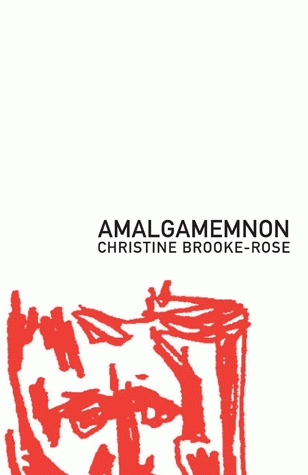What was published in 1984? Certainly a reissue of Orwell’s classic, but also Amalgamemnon, a novel by the oddly overlooked British author of twenty-six books, many of which push the limits of the English language as much as Stein or Joyce (and are just as much fun). ‘If we are ever to experience in English the serious practice of narrative,’ wrote Frank Kermode, ‘we shall have to attend to Christine Brooke-Rose.’
‘Wouldn’t it be better to make up a story in my head, unheeded and unhinged?’ says Amalgamemnon’s narrator Mira‘Inky-tie’ Enketei, a ‘redundant’ classics professor and Cassandra-like writer (as she can use only speculative tenses) of predictive text. A postmodern, (pre) post-human cyborg in a very contemporary landscape of terrorism, celebrity gossip and information overload – prefiguring the internet age – Mira conjures up a diffuse and diffusing Baudrillardian landscape of mise-en-abîme screens, radio broadcasts and newspaper headlines, prompting an internalised Orwellian ‘doublethink’ (or perhaps ‘multithink’) controlled not by a sinister ‘Party’ but self-generated by the nature of the media.

‘If thought corrupts language,’ Orwell says in his essay, Politics and the English Language’,‘language can also corrupt thought.’ Mira’s slide into sideways ‘utterly other discourse’ (‘it refers to the woman reading and thinking quite other things until she has to switch back to talking to the man’ said Brooke-Rose in an interview) is also evidence of the way women speak. She escapes into puns, quotes, terrible jokes, only to find herself trapped there too. In Orwell’s dystopia, words may be subversive, but here they offer consolation rather than revolution.
‘He who controls the past controls the future. He who controls the present controls the past,’ wrote Orwell of his vision of a totalitarian society. Amalgamemnon is not only a book for 1984, it’s a book that should be (re)read in the present tense.‘The best books,’ as Winston Smith notes,‘are those that tell you what you know already.’
Amalgamemnon is published by The Dalkey Archive Press.







